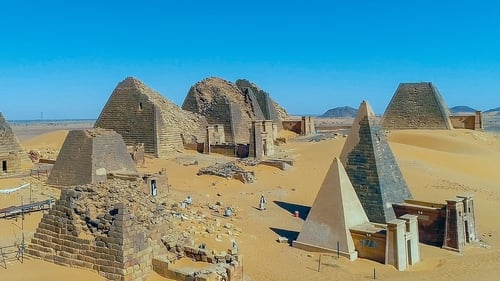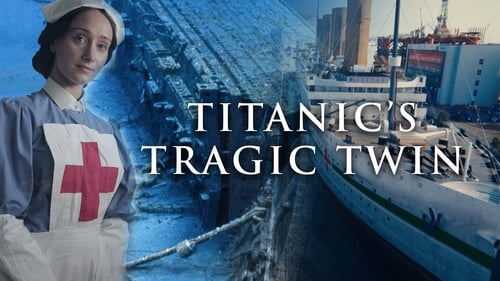
Executive Producer
Ardal O’Hanlon explores a 1930s quest to find the first Irish men and women using archaeology, answering his deepest questions about what it means to be Irish.

Executive Producer
The Kush Empire was an ancient superpower that dominated the Nile Valley and rivaled the Egyptians, and now, a new, cutting-edge investigation at a mysterious tomb could reveal the secrets of this formidable lost kingdom.

Executive Producer
The English language is spoken by 450 million people around the globe, with a further one billion using it as a second language. It is arguably Britain’s most famous export. The man often given credit for the global triumph of English, and the invention of many of our modern words, is William Shakespeare. Shakespeare’s plays first hit the stage four centuries ago, as the explorers of Elizabethan England were laying the foundations for the British empire. It was this empire that would carry English around the world. Language historian and BBC New Generation Thinker Dr John Gallagher asks whether the real story of how English became a global linguistic superpower is more complex.

Executive Producer
Dr Fern Riddell is a young historian and author who goes back to the archives to challenge more traditional historical views of Victorian society. Her investigation into a sensational Victorian high court trial, which took place in 1877, sheds new light on the ‘no sex please, we are British’ cliché often associated with Victorian England.

Executive Producer
In a long-form interview, Kate recalls how she was wounded by gunfire and narrowly escaped death herself as she and her cameraman remained in the line of fire while an estimated 2,000 pro-democracy demonstrators were shot down by Chinese government troops. Kate reviews the reports she made on the ground, with additional insight from leading historian Professor Steve Tsang, and draws on the BBC's archive to assess how film-makers have portrayed China before and after the upheaval.

Executive Producer
Janina Ramírez explora los archivos de la BBC para crear una historia televisiva de Leonardo Da Vinci, descubriendo lo que se encuentra debajo de la Mona Lisa e incluso cómo adquirió su conocimiento anatómico.

Executive Producer
Documentary about the sinking of the Britannic during the First World War, examining how she ultimately came to suffer the same fate as her sister ship, the Titanic. The Titanic sank in April 1912, and her sister ship, the Britannic, ultimately suffered the fate, sinking in 1916 due to an explosion caused by an underwater mine. In the wake of the Titanic disaster, Britannic was re-engineered to be even stronger. And yet she sank in just 55 minutes - three times faster than Titanic. It's one of Britain's greatest untold disaster stories. Now on the 100th anniversary, presenters Kate Humble and Andy Torbet piece together exactly what happened in those 55 minutes. While Andy makes a dangerous dive to the wreck, Kate speaks to descendants of the survivors. The characters she uncovers include Violet 'Miss Unsinkable' Jessops, who survived both Titanic and Britannic, Captain 'Iceberg Charlie' Bartlett and lookout Archie Jewell, who miraculously survived while those around him died.

Executive Producer
Professor Alice Roberts joins the team excavating a 3,000-year-old Bronze Age village in the Cambridgeshire Fens that's been called the 'British Pompeii' due to the remarkable levels of preservation.






